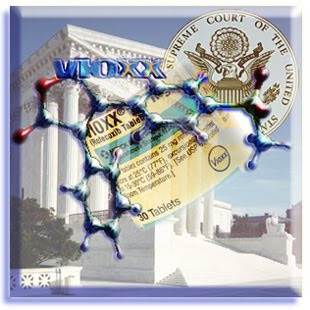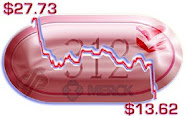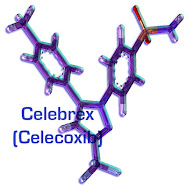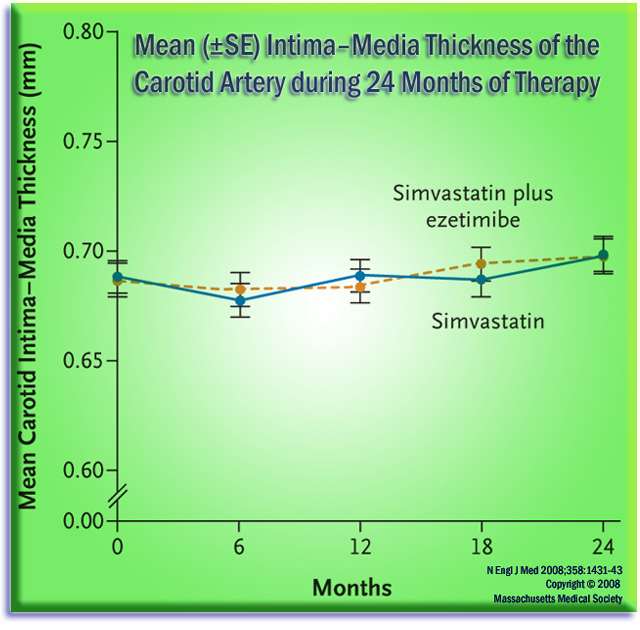Or, in what way, exactly, does this "Earn trust, every day"?
As I predicted, the Schering-Plough SEC Form 10-Q (as to which '34 Act fraud liability attaches, for omissions -- or half-truths) contains a more frank assessment of the Cholesterol Joint Venture's fortunes for 2008, than did the press release, and the Schering earnings conference call of April 23, 3008:
. . . .The cholesterol-reduction market is the single largest pharmaceutical category in the world. VYTORIN and ZETIA are competing in this market. During the first three months of 2008, total sales of VYTORIN and ZETIA in the U.S. declined 5 percent as compared to the first three months of 2007. As of March 2008, total combined prescription share for VYTORIN and ZETIA in the U.S. was down approximately three market share points versus December 2007 from 16.9 percent to 14.2 percent. Subsequent prescription data in April 2008 indicates a further decline. Media reaction to the release of the results of the ENHANCE clinical trial in early 2008 led some commentators to call for the use of other products, rather than VYTORIN and ZETIA. Continued reductions in the sales and/or market share of Schering-Plough’s cholesterol franchise would have a significant impact on Schering-Plough’s consolidated results of operations and cash flows as Schering-Plough’s current profitability is largely dependent upon the performance of the cholesterol franchise. . . .
In SEC-speak "largely-dependent", means well north of 50 percent. Wow. Moreover, remember that all of the above-detailed decline was prior to the ACC March 30, 2008 Panel discussion -- which discussion plainly suggested Vytorin/Zetia should be a therapy of last resort, not anyone's primary therapy, at all. So, none of the above declines yet reflect that worsening information flow. Yikes.
And then there is this, in tonight's Form 10-Q filing:
. . . .Schering-Plough encountered a challenge affecting sales of ZETIA and VYTORIN when the results of the ENHANCE trial, as well as the length of time that expired between the last patient having an ultrasound image taken for the trial through the final analysis and the unblinding of data, became the subjects of intense scrutiny and varying interpretations in the media. . . .
Notice especially that Mr. Hassan's "unwarranted confusion" mantra has now vanished from view.
Why?
Because any half-truth here -- in an SEC-filed periodic report -- creates '34 Act liability for fraud, that's why. [Note also the admission that the delay in the ENHANCE results becoming public is part of the issue, here -- that's new.]
I am still very puzzled by the fact that Merck has accepted '34 Act peril for the $700 million in declining 2008 Joint Venture equity income -- all while Schering still refuses to acknowlege this estimate, an admission against interest (by an albeit much-larger company, Merck), from its 50 / 50 partner's own keyboard, and now on file with the SEC. Odd. That seems unduly risky -- as being wrong here (i.e., not disclosing a reasonable range), will ultimately be far more painful (with the US Attorneys now studiously watching every Schering J/V move), than being potentially a little too-high in the estimates of 2008 equity income fall-off.
The good news in that, I guess, is that Schering (via Mr. Hassan) did not make any (renewed) claim that "no model exists" for estimating that fall-off in equity income -- not in this Form 10-Q. Again, we know exactly why it didn't, don't we?
Additionally, though Merck had made this disclosure as a fact in its 2007 year-end Form 10-K, Schering had, until tonight, claimed that this was only a possibility -- not a fact. Now, Schering is singing a changed-tune (I had noted this discrepancy a long while ago -- at the time the 10-K filed). Here is the new verse:
. . . .second-quarter and full-year net sales by the Merck/Schering-Plough cholesterol joint venture of VYTORIN and ZETIA in the U.S. are expected to decline on a year-over-year basis. Further, wholesalers, retail chains and other trade buyers in the U.S. have changed their buying patterns to reduce their inventory levels, and may make further changes, that may also impact future sales. Based on the expectation for lower sales from the Merck/Schering-Plough cholesterol joint venture, Schering-Plough expects that equity income will be lower in subsequent quarters of 2008 than it was in the first quarter of 2008. . . .
[Emphasis supplied in all the above blockquotes.]
Be very careful out there.
















2 comments:
Yes, the employees who hear the mantra, "To earn trust everyday" have lost faith in that line and in the ones who penned it. Credibility is one of a salesman's most important assets. The reduction in this value can not be estimated let alone reflected in an SEC filing. These seem to be very dark days for pharma indeed.
I am genuinely-saddened to say that I agree with you, Anonymous Commenter No. 1 -- though I do still think the work of advancing science, and saving lives, terribly important. . . .
I just think many seem to have "lost their way", somewhere along that path -- it was always supposed to be about the science of advancing health-care: real, outcomes-based human-health-care -- then, usually, the bottom line would take care of itself.
Or, so the story goes (went). . . .
Do stop back, and thank-you for the comment, here!
Post a Comment